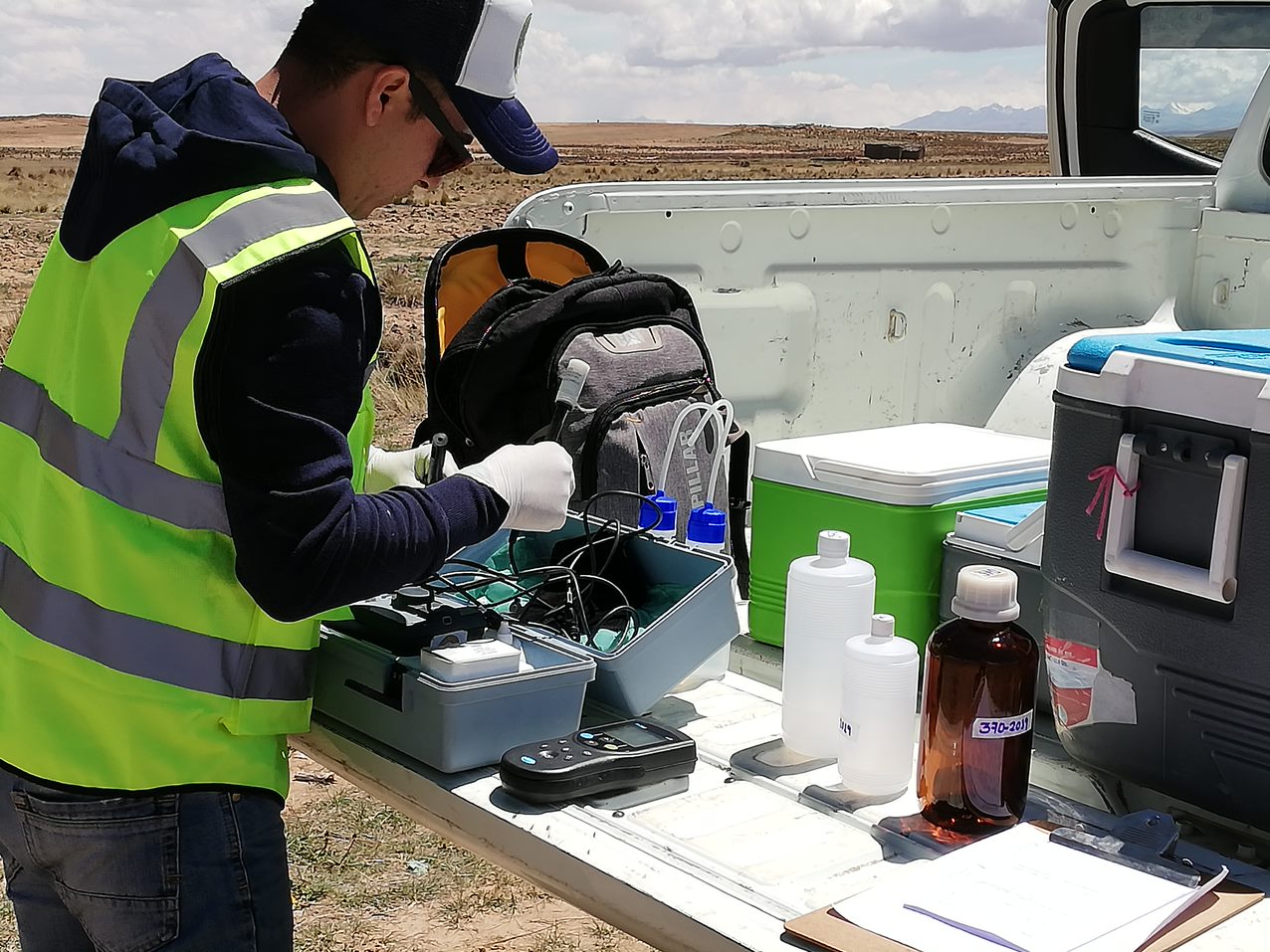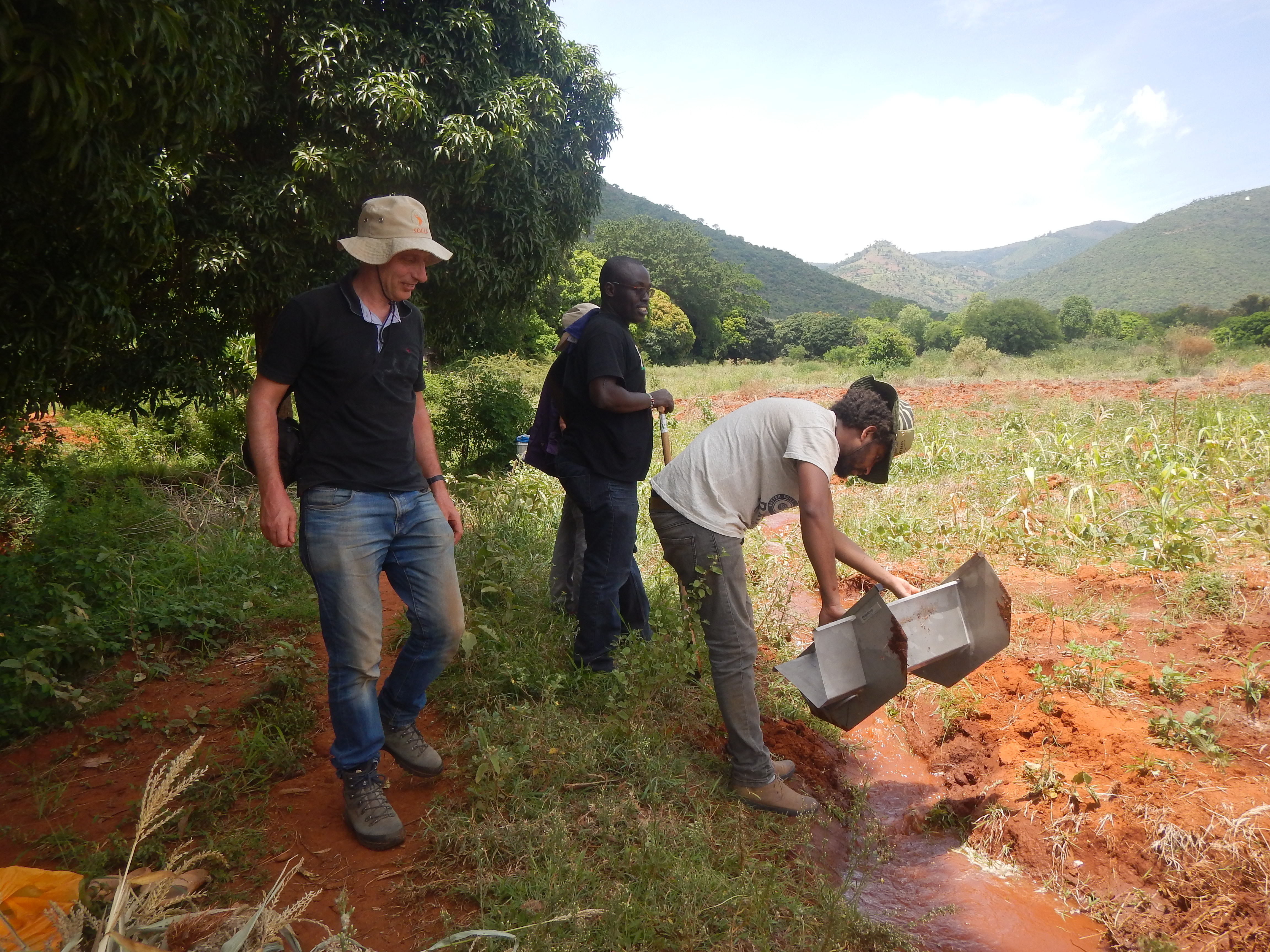Our website uses cookies to improve your experience. To make optimal use of this website please agree to our cookie policy.

On World Water Day, we are happy to present you some of the accomplishments of our research teams in the field of water resources. Access to clean water is one of the biggest global challenges of the 21st century. This article describes our water research projects to tackle pressing issues like groundwater provision and sustainable management of water resources in Bolivia and sustainable agricultural practices in Tanzania.
“Climate change, increased agriculture, changing consumption practices and population growth are exerting alarming pressure on water resources. Our research can be used to improve water management practices, and to counter the impacts of these social and environmental threats. Knowing this is the greatest motivation for me.”
(Afnan Agramont)
‘Blue gold’ challenges in Bolivia
In 2016, Bolivia faced its worst drought in 25 years, which led to the declaration of a state of emergency in the country. Over the past twenty years, Bolivia has faced various water challenges, such as droughts and poorly managed water resources. Within the IUC programme with Universidad Católica Boliviana (UCB), Marijke Huysmans, professor at Vrije Universiteit Brussel (VUB) and other researchers aim to tackle some of the country’s most pressing water issues. The focus of their research is tailored to four different regions in Bolivia they work in, each with very different and specific needs: groundwater in Santa Cruz, social and political water management in La Paz, sustainable management of water resources in Cochabamba, and water quality in Tarija.
PhD student Afnan Agramont has been doing research on the La Paz project at the UCB since 2017. The Katari River, running southeast of Lake Titicaca, is heavily polluted with a severe environmental impact on the lake, the largest water reservoir in the Andes region. Agramont explores possible approaches to control the pollution in the river basin and attain a more sustainable use of the region’s water resources. He reveals the effects after two years of research: “So far, we have been able to collaborate with the river basin authorities to install a water quality monitoring network. This collaboration has allowed us to implement three water quality monitoring campaigns so that we have more information on how to better manage contamination within the entire system."
The beneficial effects of the La Paz project are reflected in academic and societal areas. The IUC project team presented nine papers on the first International Congress of Integral Water Management in October 2019 that was co-organised with the UCB and hosted experts from fourteen countries. Water laboratories in La Paz, Cochabamba and Tarija have been accredited as inspection bodies for natural water quality for the national Bolivian metrological institute (Instituto Boliviano de Metrología). Huysmans also points at the greater awareness within the university and enhanced connections with major stakeholders (NGOs, cooperatives and governmental organisations) enabling to build bridges between the academic world and society.

PhD student Afnan Agramont takes part in the La Paz research project at Universidad Católica Boliviana.
Water supply stress for local farmers in Tanzania
Agriculture is the major user of water in Tanzania, another VLIR-UOS partner country. The intensive water use for irrigation canals by farmers living in the Upper Pangani River basin, one of the country’s most important water resources, causes water scarcity for other users further down the river. On top of that, farmers often use traditional, unsustainable agricultural practices that contribute to water stress and land degradation. Climate change also puts a strain on water use as it is causing the Kilimanjaro glaciers to melt. Although the melting will cause the streamflow to increase initially, this will result in less water availability in the long run.
Despite these threats to the basin’s water, a lot of farmers are unaware of how much water they are actually using and if they are using it at all efficiently. Therefore, The Catholic University of Leuven (KU Leuven) and the Nelson Mandela African Institution of Science and Technology (NM-AIST) have set the goal of achieving the highest crop production with the lowest use of water, as part of their long-term IUC cooperation since 2013.
The researchers want to develop expertise in the field of hydrology and integrated river basin management at NM-AIST, as well as contribute to improved allocation and management of water resources in the Upper Pangani Basin in particular. Ann van Griensven, researcher at VUB and Flemish project promoter within the IUC programme at the NM-AIST explains how they proceed: “With this project, we mainly try to quantify water use. We are now mapping irrigation systems and agricultural practices. That way, we get a better idea of when and where there is irrigation, what quantities of water are used and what revenues farmers get from using those quantities.”
Monitoring of irrigation flows in Tanzania © Muggaga Monica Nsali
Capacity building
After six years of hard work within the IUC programme, some impacts can already be seen. Research from the PhD project was accepted for presentation at international conferences and published in international journals. There are now facilities for laboratory work and data analysis at NM-AIST, with the laboratories fitted with state-of-the-art equipment. The project has also laid the foundations for other important projects, most of them being to a large extent the result of the VLIR-UOS IUC programme.
Spreading the knowledge to all stakeholders, and particularly to local farmers, is next. One of these stakeholders is the Pangani Basin Water Office, which is responsible for allocating water for different uses, managing and controlling water use, and creating awareness on how to use water effectively and efficiently. The improved practices are communicated to the farmers by regional agricultural bureaus and NGOs in the sector, supported by uptake strategies and information sheets provided by the project team.
The Interuniversity Programme in Water Resources Engineering (ICP IUPWARE) is another direct result of the IUC programme in Tanzania. It is an international Master Programme that aims to train people from partner countries in integrated water management, modelling, data processing etc. Van Griensven concludes by highlighting the big sustainable impact of the project: “They use this knowledge in their careers, go and work in academia or at ministries in their home countries, where they apply the knowledge acquired to water research or management. This capacity building via education is very important.”
Want to read more?
As of early April our publication 'Sharing minds, changing lives. 20 years of impact’ will be released. From then on we will publish these impact stories also as individual stories on our website, Facebook and Twitter.
So be sure to follow us!
